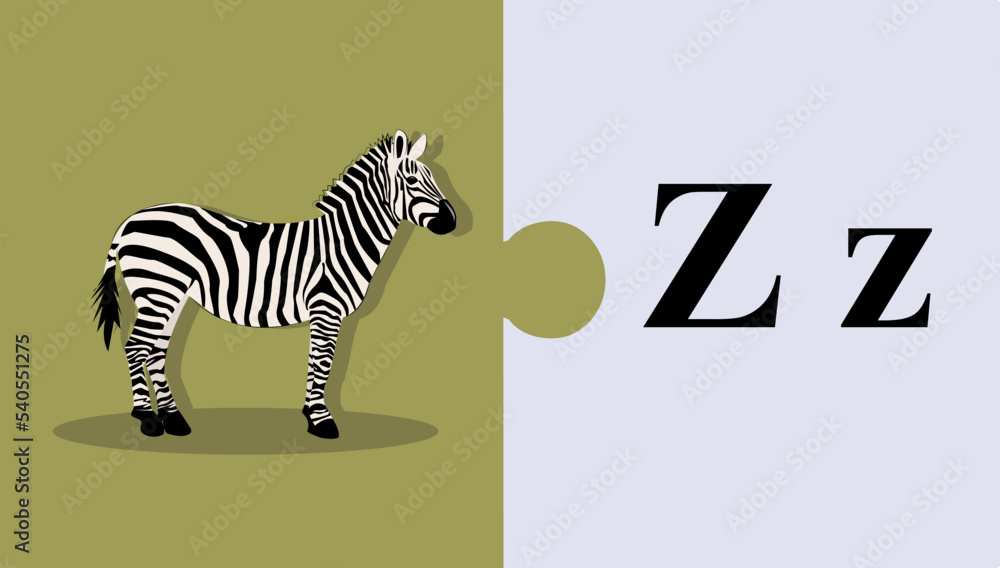The letter ‘Z’ holds a unique position in the English alphabet, often perceived as the last stop on the alphabetical journey. Yet, its presence is far from insignificant. While the frequency of words starting with ‘Z’ might be lower compared to other letters, the words themselves often carry a distinctive flavor, imbuing vocabulary with a sense of dynamism, specificity, and even exoticism. From the energetic “zip” to the serene “zenith,” the words that begin with ‘Z’ paint a rich tapestry of concepts and images.
The Allure of ‘Z’ Words

The scarcity of ‘Z’ words can actually make them stand out. Consider the word “zeal.” It encapsulates a fervent enthusiasm, a passionate commitment that few other words capture with such precision. Or think of “zeitgeist,” a term borrowed from German, representing the spirit of the times, the prevailing mood or intellectual climate of a particular era. These words, by their very nature, lend a certain gravitas and sophistication to any communication.
The sound of the letter ‘Z’ itself contributes to this effect. Its buzzing, vibrant quality can add emphasis and excitement to language. Think of words like “zap” or “zoom” – their phonetic structure immediately conveys a sense of speed and impact. Even words like “zigzag” possess a playful energy, evoking a sense of unexpected turns and deviations.
Furthermore, many ‘Z’ words have origins in other languages, particularly Greek, Hebrew, and Arabic, contributing to their sense of exoticism and intellectual weight. “Zenith,” for instance, comes from Arabic, referring to the highest point reached by a celestial body. “Zion,” with its Hebrew roots, carries significant religious and cultural weight. “Zero,” derived from Arabic through Italian, is a foundational concept in mathematics. These linguistic roots enrich the meaning of ‘Z’ words, connecting them to a broader global context.
The relative rarity of ‘Z’ words also makes them valuable tools for writers and speakers seeking to add variety and interest to their language. Substituting a common word with a less frequent ‘Z’ word can elevate the tone and make the message more memorable. For example, instead of saying “a time of great energy,” one could say “a time of great zest.” The latter immediately adds a layer of nuance and sophistication.
Moreover, the ‘Z’ sound is often associated with innovation and modernity. Think of the term “Generation Z,” referring to the demographic cohort born from the late 1990s to the early 2010s. The letter ‘Z’ here symbolizes a generation that is tech-savvy, forward-thinking, and often associated with disruptive innovation.
The impact of ‘Z’ words extends beyond simple vocabulary expansion. It’s about appreciating the diversity of the English language and understanding how even seemingly insignificant letters can contribute to the richness and complexity of communication. By consciously incorporating ‘Z’ words into our vocabulary, we can inject a dose of dynamism, sophistication, and even a touch of the exotic into our speech and writing. The exploration of ‘Z’ words is a reminder that every letter in the alphabet has a unique story to tell, contributing to the vibrant tapestry of human expression.
Exploring the World of ‘Z’ Words: Imagery and Concepts

Beyond their linguistic appeal, ‘Z’ words often conjure vivid imagery and represent diverse concepts. For example, the word “zebra” instantly brings to mind the striking black and white striped animal, a symbol of uniqueness and individuality. The “zip” of a jacket is an everyday sound that represents convenience and speed. “Zombie,” while often used in fictional contexts, raises questions about life, death, and the boundaries of consciousness.
The concept of “zero” is also profoundly significant. It represents the absence of quantity, a foundational element in mathematics and computer science. Without zero, many of the technological advancements we rely on today would be impossible.
Words like “zone” are used in a variety of contexts, from geographical areas to psychological states. We speak of “comfort zones,” “war zones,” and “time zones,” each evoking distinct images and feelings. The “zone” in sports refers to a state of heightened focus and performance, where athletes operate at their peak potential.
Then there are words like “zest,” which captures a sense of enthusiasm, energy, and passion for life. To live life with zest is to embrace new experiences, to approach challenges with vigor, and to find joy in the everyday.
The word “zigzag,” with its visual and phonetic appeal, represents a winding path, a deviation from the straight line. It can symbolize unpredictability, adventure, or a playful disregard for conventional routes.
Furthermore, many ‘Z’ words are associated with scientific and technological fields. “Zinc,” a chemical element, plays a crucial role in various biological processes and industrial applications. “Zygote,” a biological term, refers to the cell formed by the fusion of two gametes, representing the beginning of new life.
The exploration of ‘Z’ words extends beyond their simple definitions. It’s about understanding the cultural, historical, and scientific contexts that shape their meanings and usage. By delving deeper into the world of ‘Z’ words, we can gain a richer appreciation for the power and versatility of the English language. Consider the term “zodiac,” which originates from ancient astronomy and astrology. The zodiac encompasses a belt of constellations through which the sun, moon, and planets appear to travel. Each sign of the zodiac is associated with specific personality traits and characteristics, shaping beliefs and practices across cultures for centuries.
The word “zeppelin,” a type of rigid airship, evokes images of early 20th-century travel and innovation. While zeppelins are no longer a common mode of transportation, their legacy continues to inspire dreams of flight and exploration.
In conclusion, the ‘Z’ words in the English language, though seemingly limited in number, offer a rich tapestry of meanings, concepts, and imagery. From the scientific precision of “zinc” to the exuberant energy of “zest,” these words enrich our vocabulary and enhance our ability to communicate effectively and creatively. By embracing the ‘Z’ words, we can add a distinctive flavor to our speech and writing, injecting a dose of dynamism, sophistication, and a touch of the exotic into our linguistic expression. The journey through the world of ‘Z’ words serves as a reminder of the boundless possibilities of language and the power of even the most unassuming letters to shape our thoughts and perceptions.
If you are searching about letter z, words starting with z, alphabet, learning the alphabet you’ve came to the right page. We have 5 Pictures about letter z, words starting with z, alphabet, learning the alphabet like 31 Word Starting With Letter Z Illustrations Stock Vectors, Images, English words starting with Z 295591 Vector Art at Vecteezy and also Words that Start with Z – 450+ List, Meaning, PDF. Here it is:
Letter Z, Words Starting With Z, Alphabet, Learning The Alphabet

stock.adobe.com
Letter Z | A Selection Of Words Starting With Alphabet Z – Letters In

www.lettersinenglish.com
letter
Words That Start With Z – 450+ List, Meaning, PDF

www.examples.com
English Words Starting With Z 295591 Vector Art At Vecteezy

www.vecteezy.com
words starting english vector premium vecteezy
31 Word Starting With Letter Z Illustrations Stock Vectors, Images

www.shutterstock.com
English words starting with z 295591 vector art at vecteezy. Words that start with z. Letter z, words starting with z, alphabet, learning the alphabet






